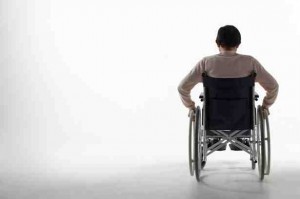

The Con-Dems are hammering those struggling with serious ill health as they bring in more welfare reforms this week.
Charities say 300,000 people will lose help they desperately need to survive and could be at risk of losing their homes as a crucial benefit is stopped after one year – even for those still deemed too ill to work.
The Welfare Reform Act, passed in March, has changed the law so that from April 30, claimants of the contributory Employment and Support Allowance will only receive this benefit for one year maximum.
This is meant to be a measure to get people who are milking the system off benefits and back to work.
Protection
But those affected by this change are not work-shy layabouts, living off state handouts because they can’t be bothered to get out of bed.
These are hard-working people who have paid their dues, many working for decades paying National Insurance, in the mistaken belief that this would protect them if they became too ill to work. We are talking about people with really serious conditions, cancer patients and those in wheelchairs.
Citizens Advice chief executive Gillian Guy said: “We’re really concerned that the Government has gone ahead with limiting the length of time that people can get contribution based ESA, despite appeals for them to rethink or at least delay their plans.
“This change will see 300,000 people losing almost £100 a week even when they continue to be assessed as being too ill to work.
“Citizens Advice Bureaux are already seeing clients worried about being able to pay their mortgage or meet basic living costs.”
As part of the welfare reforms those on ESA have to take part in a Work Capability Assessment.
If they are found to have limited capability for work they could be placed in what is called the “work related activity group” – and they will be expected to move towards work.
A smaller number of the most severely disabled claimants are placed into the Support Group, where contributory ESA is not time-limited.
Around 700,000 people will be affected by this change and some may be able to claim some or part of the amount they lose in means tested ESA that takes into account the total household income
and savings. But, 300,000 are expected to lose the full amount.
One claimant told Citizens Advice she had recently lost her sight and had to give up work. She then claimed ESA and was placed in the “work related activity group”.
Reliant
She still cannot safely leave her home on her own and is reliant on her family for help with all the normal everyday tasks.
Her husband’s wage pays the mortgage and other bills and her ESA pays for the food and any other expenses she faces.
She does not believe there is any realistic prospect of her having adapted sufficiently and finding work within the year timeframe and believes that they will lose their house as a result because the family simply won’t be able to make ends meet.
Gillian Guy adds: “We will be closely monitoring the impact the change has on families who are already struggling to come to terms with the loss of income following the onset of illness.
“Most of those affected have paid National Insurance all their lives – sometimes over three or four decades – believing that this will protect them if they become too ill to work.
“They are feeling very betrayed and frightened by what seems a very unfair and arbitrary change.”
Get help
If you get contributory Employment and Support Allowance – the form of ESA you should be getting if you paid the right amount of National Insurance contributions before you were ill – you may be affected by changes.
If you’re in the Work-related Activity Group, you can only get contributory ESA for a maximum of one year. You won’t be affected if you’re in the Support Group, for those not expected to be able to work again at any time.
If you have a condition which is getting worse, you may be able to go into the Support Group instead of the Work-related Activity group. If your contributory ESA stops, you may be able to get income-based ESA instead. It will depend on your income and savings, and any income and savings of a partner, if you have one. If you were getting both contributory ESA and income-based ESA, you will get more income-based ESA to replace the contributory part. If your money goes down as a result of these changes, you might be able to get more of other benefits, such as Housing, Council Tax, Pension Credit or Tax Credits.
Get detailed personal advice from your nearest Citizens Advice Bureau
http://www.mirror.co.uk/money/welfare-reform-act-benefit-cuts-814549

same here, i’ve always avoided this paper, like all of the red tops really. However I have read a fair few articles lately that are making me look again.